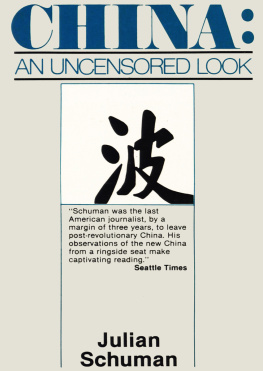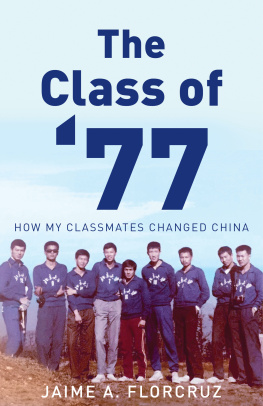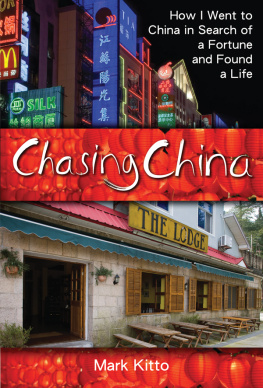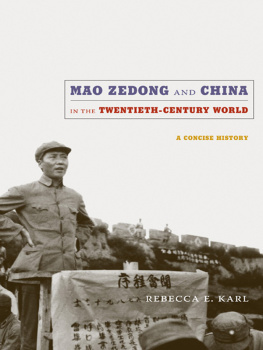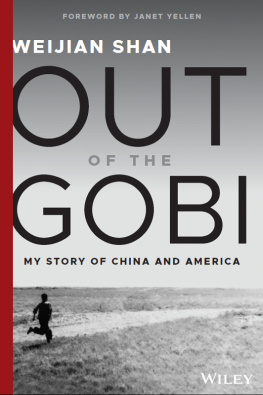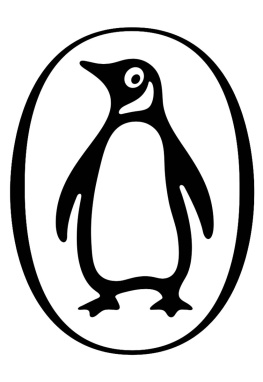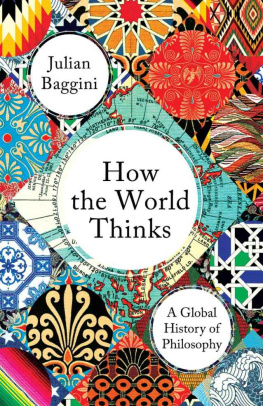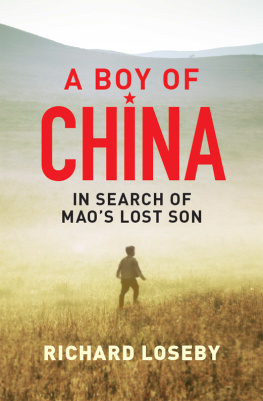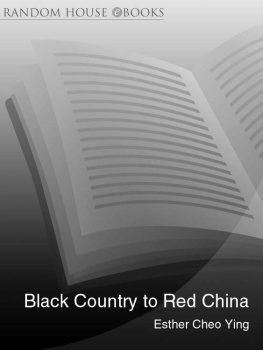Julian Schuman - China: An Uncensored Look
Here you can read online Julian Schuman - China: An Uncensored Look full text of the book (entire story) in english for free. Download pdf and epub, get meaning, cover and reviews about this ebook. year: 2016, publisher: The Permanent Press (ORD), genre: Detective and thriller. Description of the work, (preface) as well as reviews are available. Best literature library LitArk.com created for fans of good reading and offers a wide selection of genres:
Romance novel
Science fiction
Adventure
Detective
Science
History
Home and family
Prose
Art
Politics
Computer
Non-fiction
Religion
Business
Children
Humor
Choose a favorite category and find really read worthwhile books. Enjoy immersion in the world of imagination, feel the emotions of the characters or learn something new for yourself, make an fascinating discovery.
- Book:China: An Uncensored Look
- Author:
- Publisher:The Permanent Press (ORD)
- Genre:
- Year:2016
- Rating:3 / 5
- Favourites:Add to favourites
- Your mark:
- 60
- 1
- 2
- 3
- 4
- 5
China: An Uncensored Look: summary, description and annotation
We offer to read an annotation, description, summary or preface (depends on what the author of the book "China: An Uncensored Look" wrote himself). If you haven't found the necessary information about the book — write in the comments, we will try to find it.
China: An Uncensored Look — read online for free the complete book (whole text) full work
Below is the text of the book, divided by pages. System saving the place of the last page read, allows you to conveniently read the book "China: An Uncensored Look" online for free, without having to search again every time where you left off. Put a bookmark, and you can go to the page where you finished reading at any time.
Font size:
Interval:
Bookmark:

China
An Uncensored Look
Julian Schuman

New York
PREFACE
Twenty-seven years have passed since this book was written. Originally titled ASSIGNMENT CHINA, it portrayed life there as Maos new revolutionary government came to power. My observations were made as a working reporter.
When I returned to the United States in 1953 after spending six years in China, the atmosphere here was far different from that of today. McCarthyism still stalked the land. A partnership existed between agents of Chiang Kai-sheks regime and prestigious Americans who shared the belief that Chiang, after fleeing to Taiwan, should be fully supported. This China Lobby exerted strong political pressure and influence.
Since one of the goals of the Lobby was the destruction of the new government in Peking, Red China was considered anathema and anyone who had something positive to say about what was going on in China was suspected of being a subversive. This was the category I was to fall into. It was the same fate suffered by many of our governments China specialists during the late 1940s and 1950s, when the witch hunts eliminated many decent men from the State Department simply because they sawand said clearlythat Chiangs regime had no popular support and was destined to be defeated by the communists.
Arriving in San Francisco in December after leaving Shanghai, I was greeted aboard ship by two F.B.I. agents who, along with the customs inspector, made it clear that I was suspect simply for staying on in China as long as I did. This same F.B.I. duo took no pains to hide dogging my footsteps during the two weeks I spent in the Bay area.
I was shortly to discover that the papers I had written in 1948 and 1949 and the radio network I had done news broadcasts for from Shanghai were no longer interested in what I had to say. In Chicago, when I suggested that, as the only American journalist who had been in China during the first four years of the new government, I do a series of articles, the foreign editor of the Sun-Times assured me that nobody in that city is interested in Red China. In New York, there was the same blank wall. ABC made it clear that they wanted nothing to do with me. The Wall Street Journal was not interested in an article on the possibilities of U.S.-China trade. Even the editor I saw at the Reporter, an ostensibly liberal magazine, said in no uncertain terms that if I tried to write something, he didnt want an apologia for Mao.
Clearly and ironically a Party Line existed in this country at that point in history. And that Line, fueled by the China Lobby, was that 1) some domestic traitors in our State Department had lost or sold out China and that 2) Mao Tse-tungs regime was barbaric, repressive, and unGodly. Since many observant people who challenged this thesis were disgraced, investigated, or found themselves out of work, it was little wonder that the major media would not readily greet my observations with open arms.
I began working on this book while holding down a job at a small publishing house in New York. By 1955 I had it well enough under way to look for a publisher. Thanks to the efforts of Angus Cameron, an early cold war casualty at Little Brown, I found a literary agent at Harold Ober Associates, Ivan Von Auw. After reading my outline and the completed manuscript, Van Auw agreed to represent me, warning me that while such a book would be hard to sell to a publisher, he believed that it should be in print.
Some half a dozen large houses turned the book down. The rejection letter from Simon & Schuster spelled out the reason quite clearly, saying that while it was a book that ought to be published, the subject of Red China has to be handled with asbestos gloves.
Like the few other Americans who had returned home after being in China during the early years of the Peking government, I was called before the Senate Internal Security Committee headed by Senator Jenner in 1955; this occurring while I was completing my manuscript. By early 1956, a virtually unknown publisher, Whittier Books, agreed to bring the book out. Published at the end of that year it was met, with the exception of a rare review, with silence. That same year, along with John W. Powell and his wife Sylvia, I was indicted for sedition by a grand jury. Talk of timely co-incidences. Needless to say the first printing of 3,000 copies never sold out.
The indictment was ostensibly based upon what had been written about China and the war in Korea in The China Monthly Review, published in Shanghai by the Powells and of which I had been an associate editor from 1950 to 1953. The three of us went on trial in San Francisco in January, 1959. After a week, the judge ruled a mistrial. Two years later the government announced that it had dropped the case.
Much has happened over the years since this book was written, but the events of the period dealt with remain the same. And a proper understanding of that period is essential right now if we are to build our new relationship with China upon the solid ground of reality instead of the myths we were sold so long ago. Of late, vast changes have taken place in China which the makers of public opinion have not failed to note. But even here they do not refrain from sensationalism and distortion, some of which often stems from abysmal ignorance of China. This is particularly clear to me since I returned to live and work in Peking between the years 19631977.
Modernization, for instance, is the big theme today. The picture presented in our press and on television is that this has all come about virtually overnight; since Maos death in 1976. Actually, for several years before the late chairman died, China made it clear that high technology to be purchased from Japan and Western Europe was at the top of its shopping list abroad. Mao himself is on record decades ago as to the need China had to learn from the advanced industrial nations.
Many so called experts and commentators, who have either ignored Maos writing or have never bothered to read them, still doggedly hue the line that the Chinese leader was xenophobic, believed solely in ideology, and ignored the Chinese peoples economic well being. Conveniently brushed aside by such authorities is that the lot of the Chinese people improved vastly during the years Mao was in office, and that the opening of China to the United States, through the visit of the U.S. table tennis team in April, 1971, came when Mao was very much alive. Indeed, as far back as the war against Japan, in early 1945, the xenophobic Mao and Chou En-lai had sent a message to President Roosevelt offering to go to Washington to discuss current and future U.S.-China relations. Twenty-five years later, in December, 1970, it was Mao who told the American writer-journalist Edgar Snow that an American president, Richard Nixon, was welcome in China as head of state or as a tourist. Chinas Foreign Ministry, said Mao, was studying the matter of admitting Americans of all political stripesleft, right and centerto visit China. Life magazine carried the Mao-Snow talk in its April 30, 1971 issue.
The U.S.-China connection today is presented to the American public as something that the present pragmatic leaders in Peking have come up with as opposed to Maos revolutionary romanticism. Perhaps that is the way that those whove shaped our foreign policy throughout these many years could save face; could rationalize to the American public why we can now seek an accommodation with China. In truth, those of us who visited or worked in China during the days of non-recognition can testify that two of the hallmarks of the Peoples Republic, from its inception, were pragmatism and reasonableness. The reporter from
Font size:
Interval:
Bookmark:
Similar books «China: An Uncensored Look»
Look at similar books to China: An Uncensored Look. We have selected literature similar in name and meaning in the hope of providing readers with more options to find new, interesting, not yet read works.
Discussion, reviews of the book China: An Uncensored Look and just readers' own opinions. Leave your comments, write what you think about the work, its meaning or the main characters. Specify what exactly you liked and what you didn't like, and why you think so.

